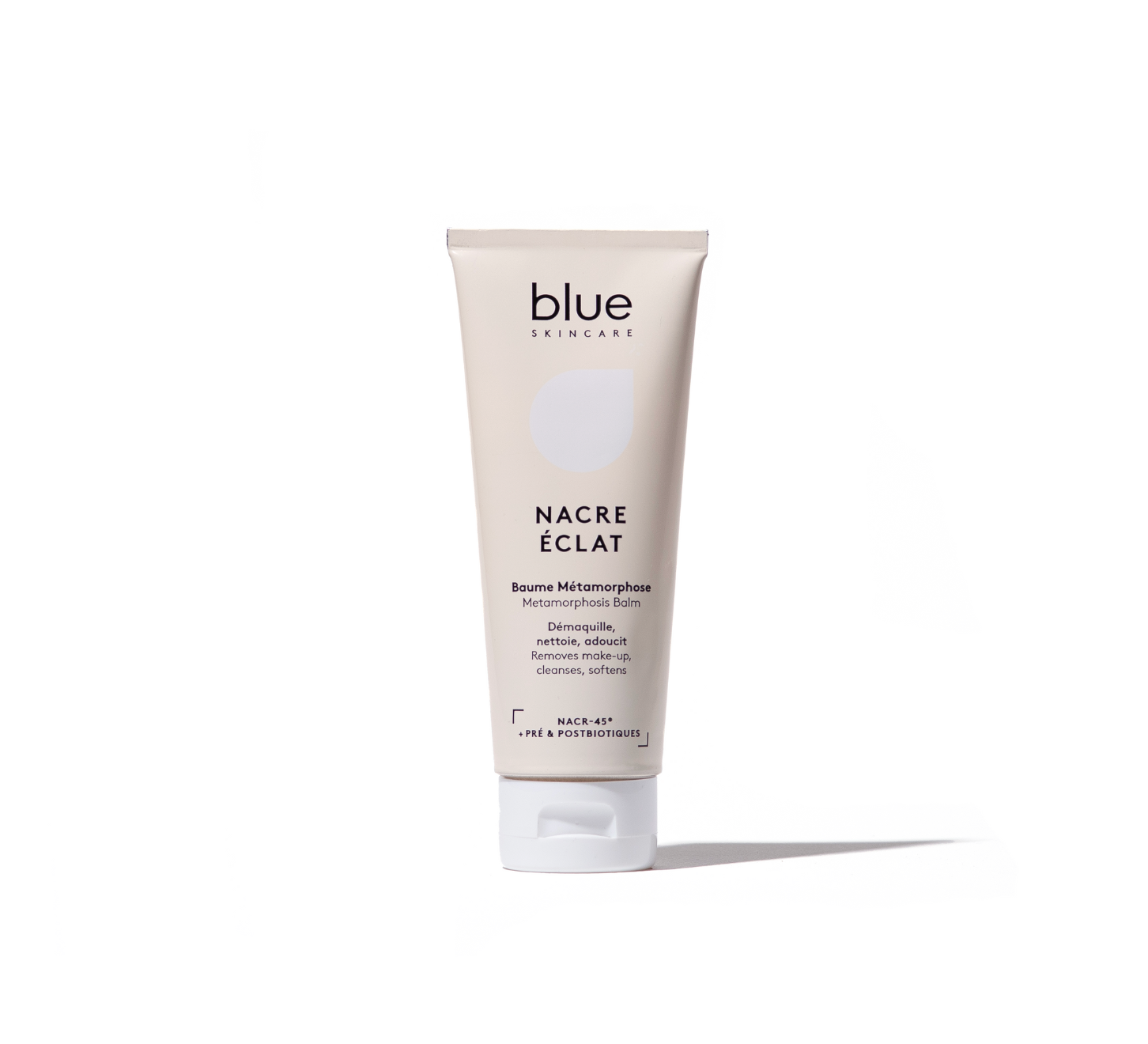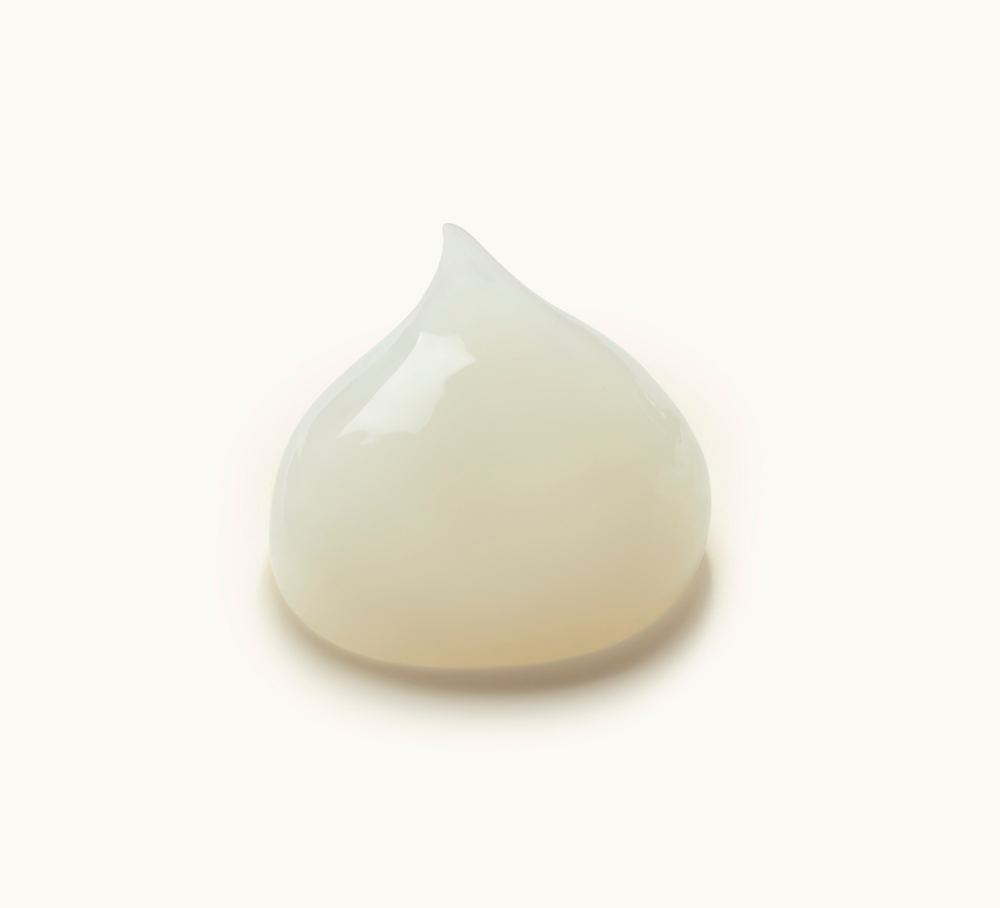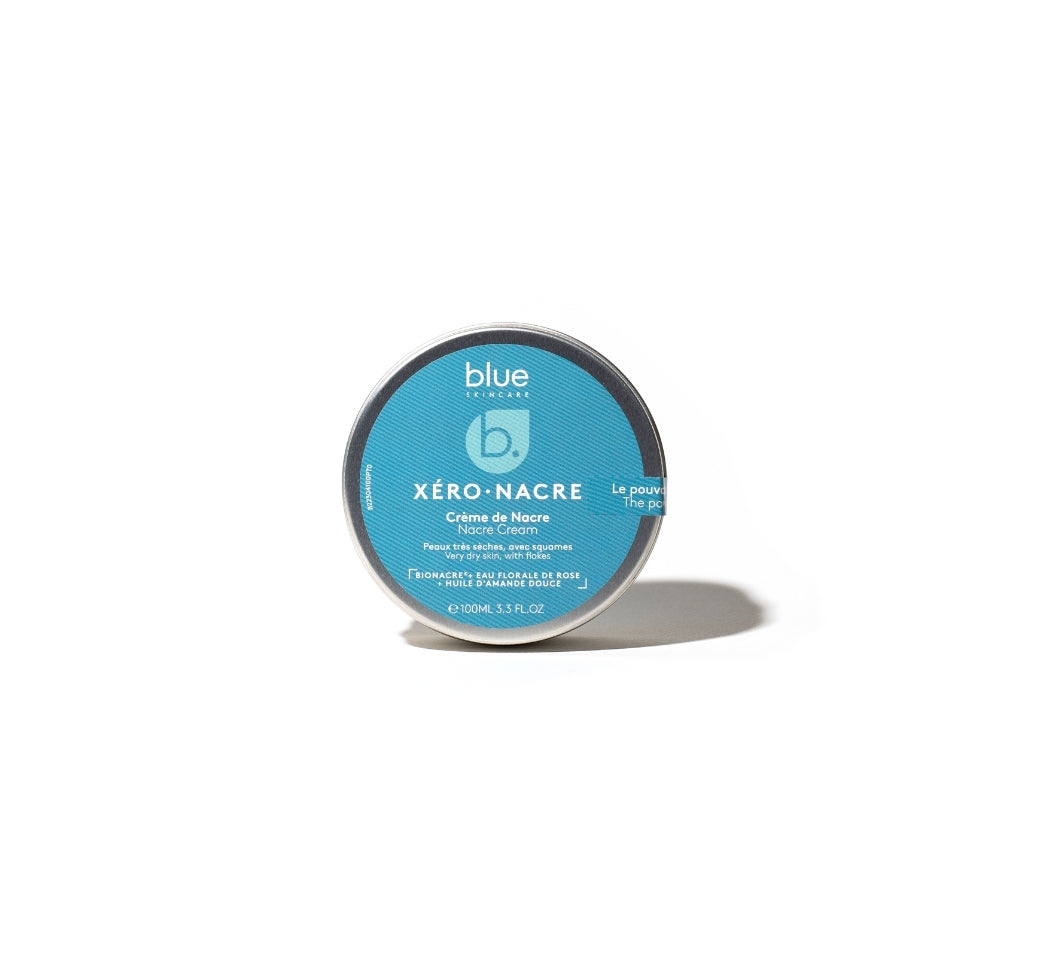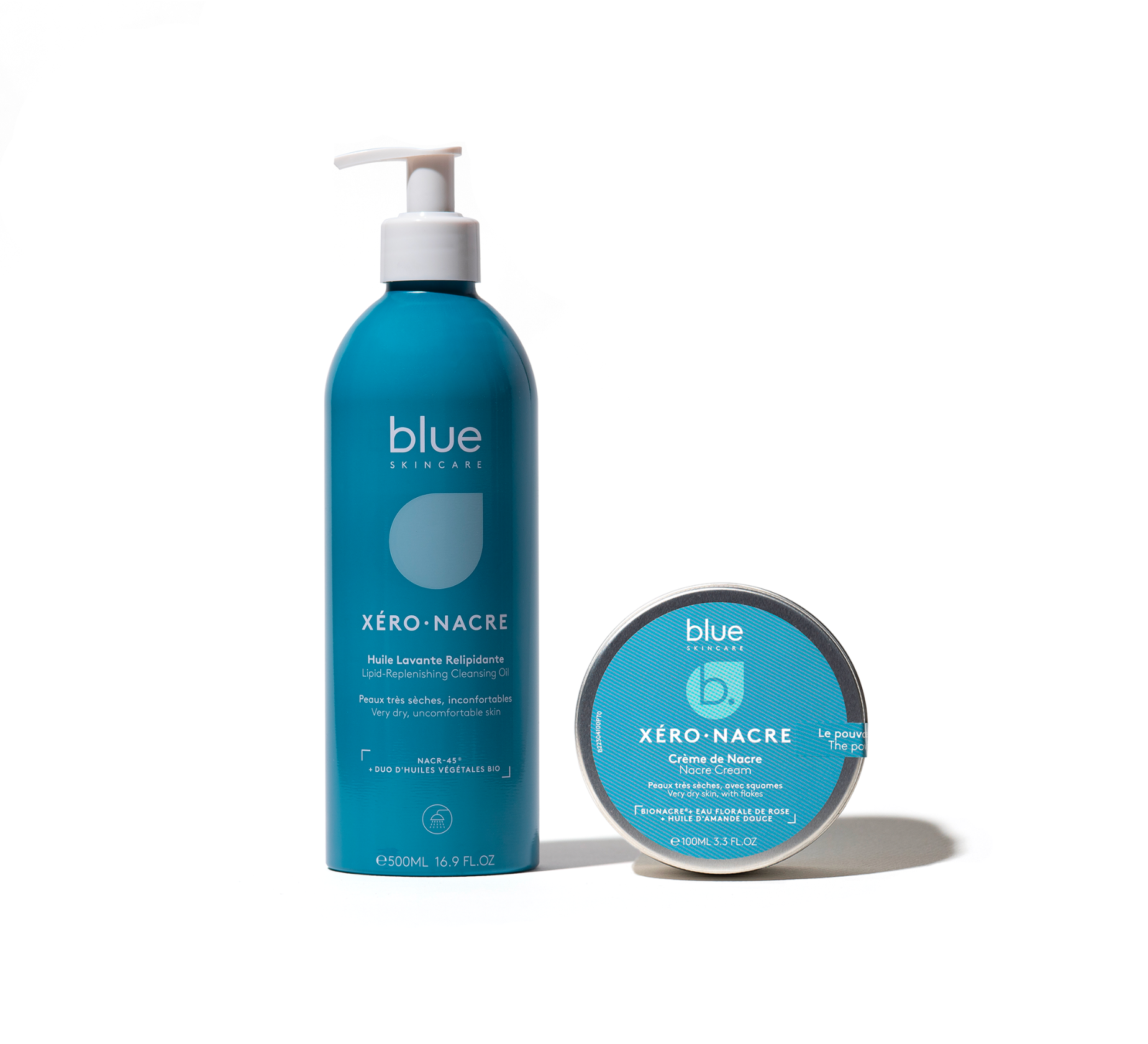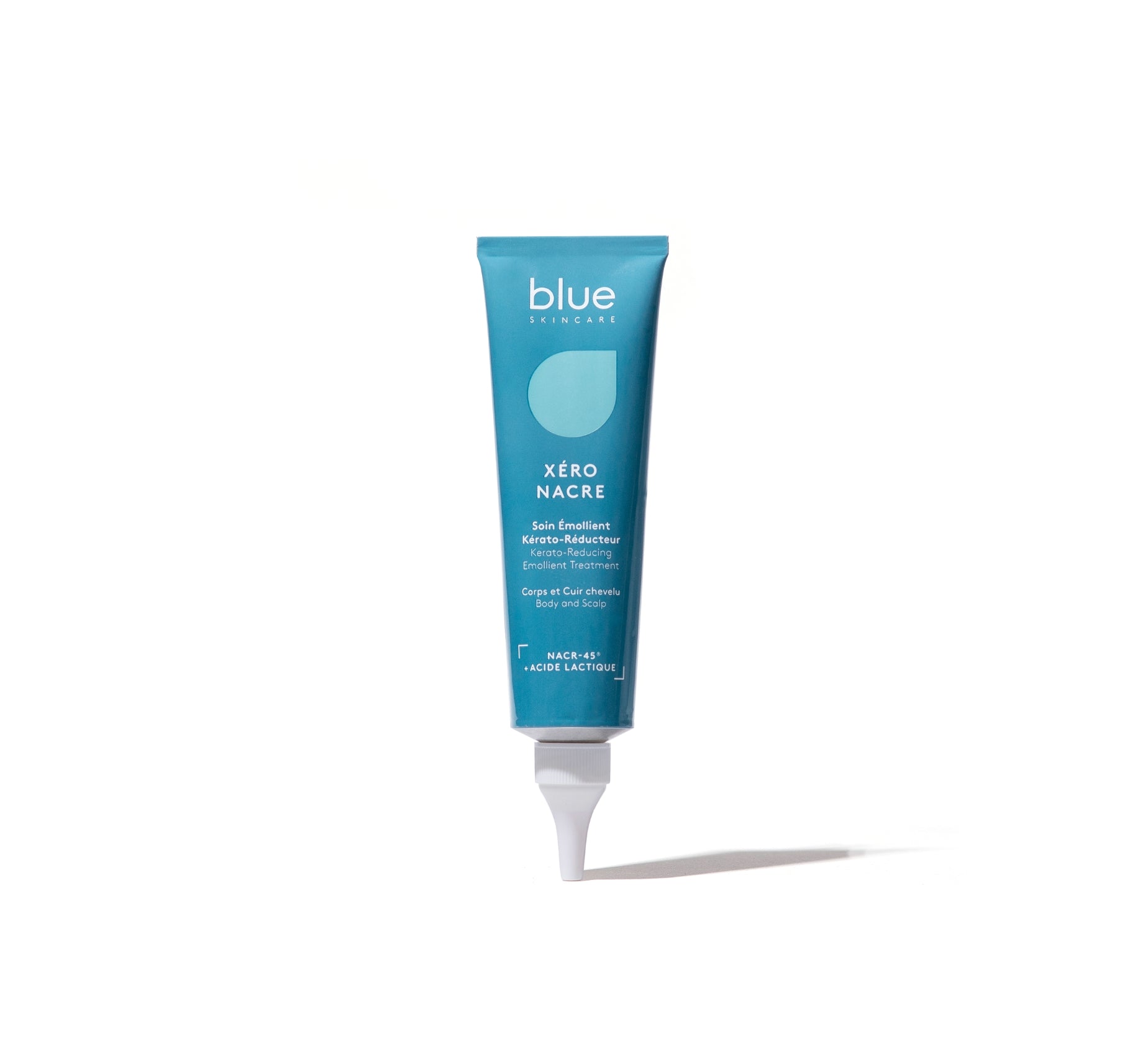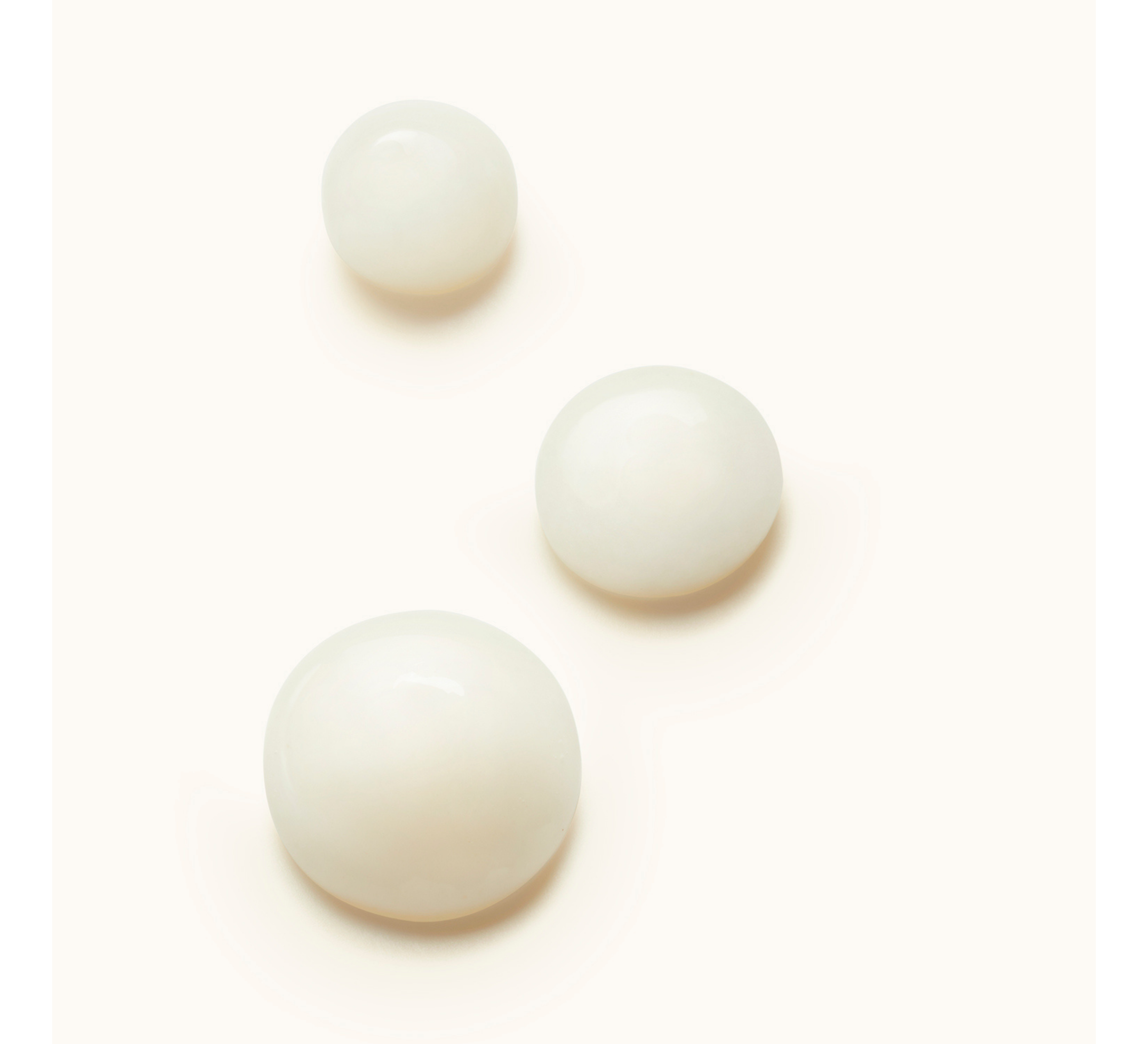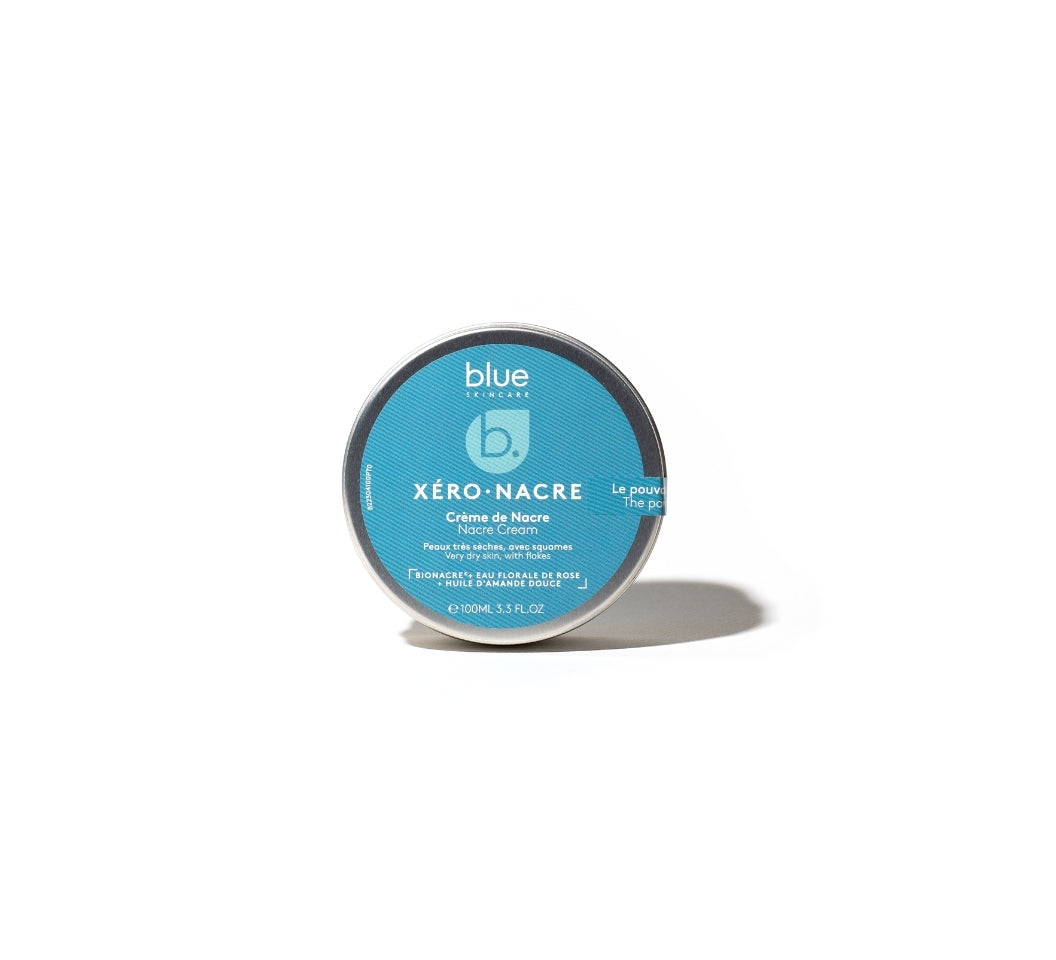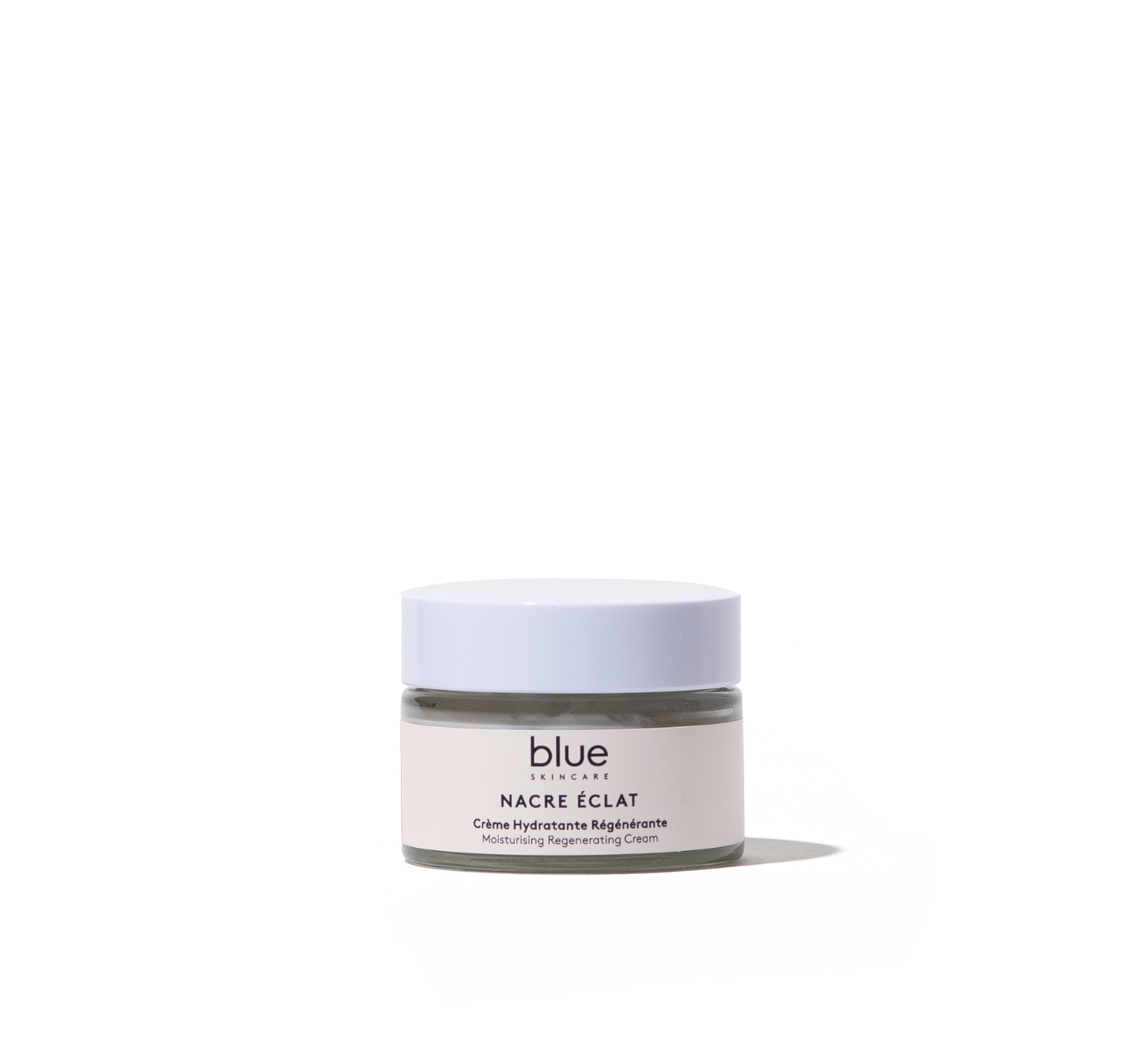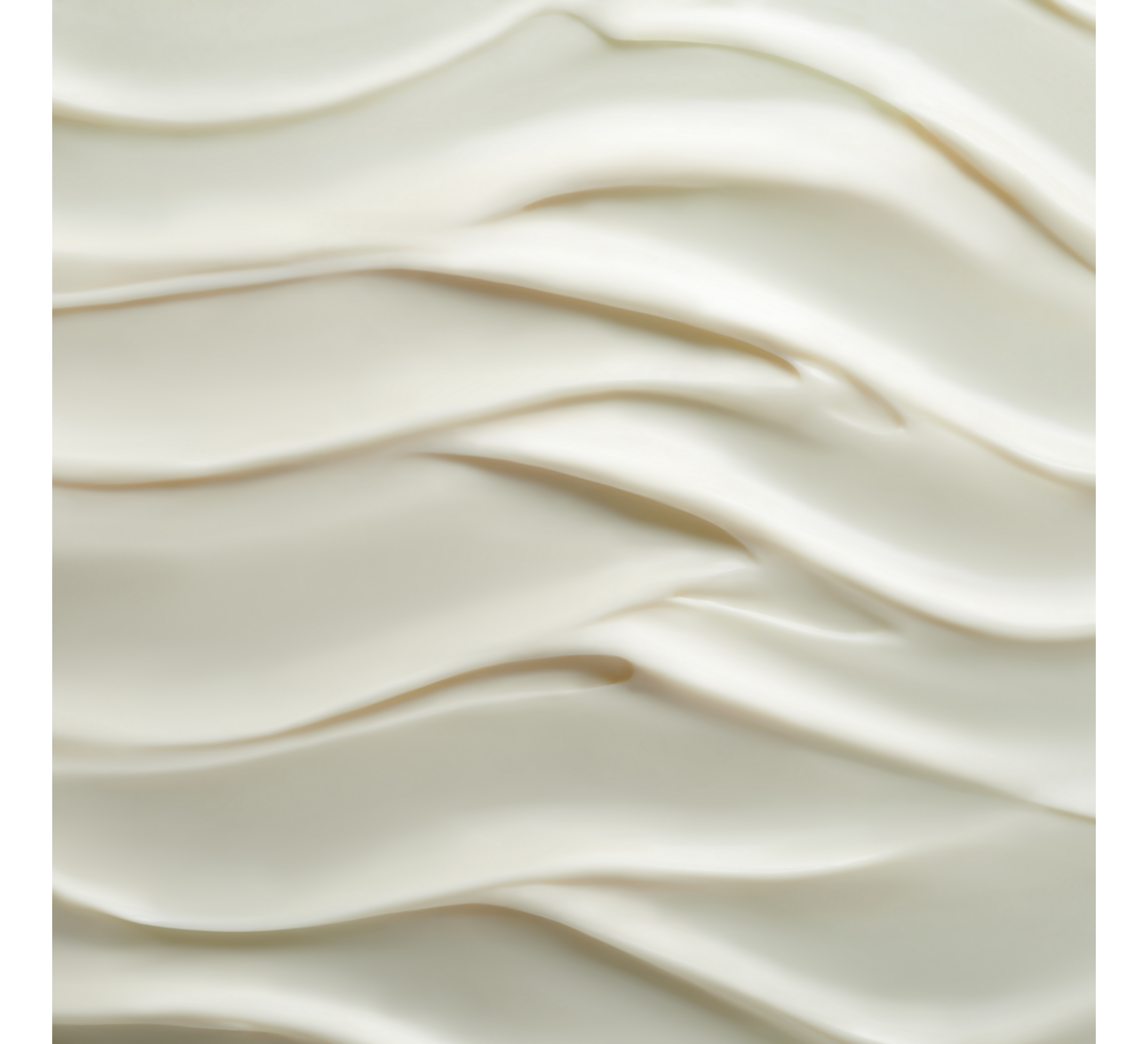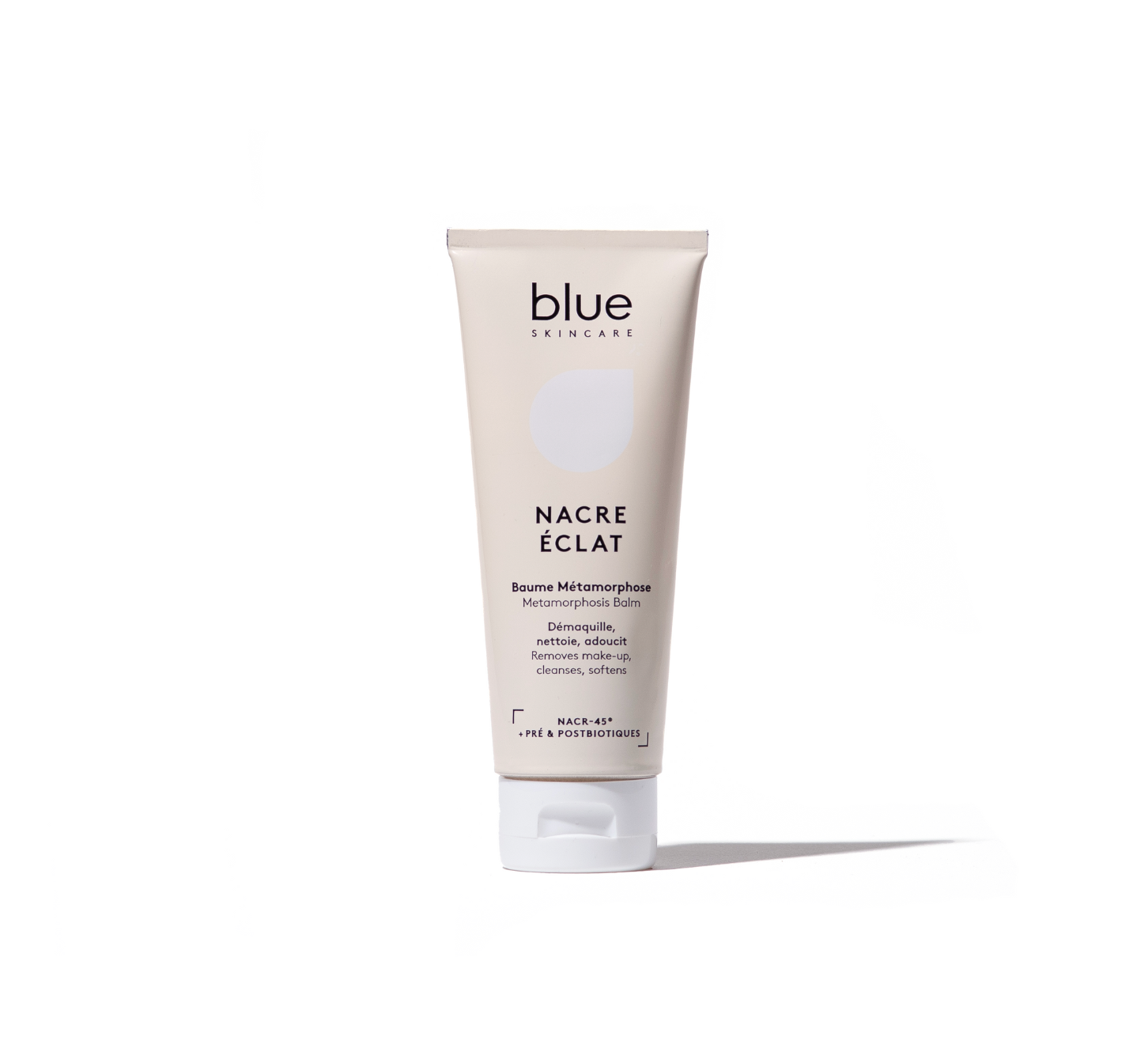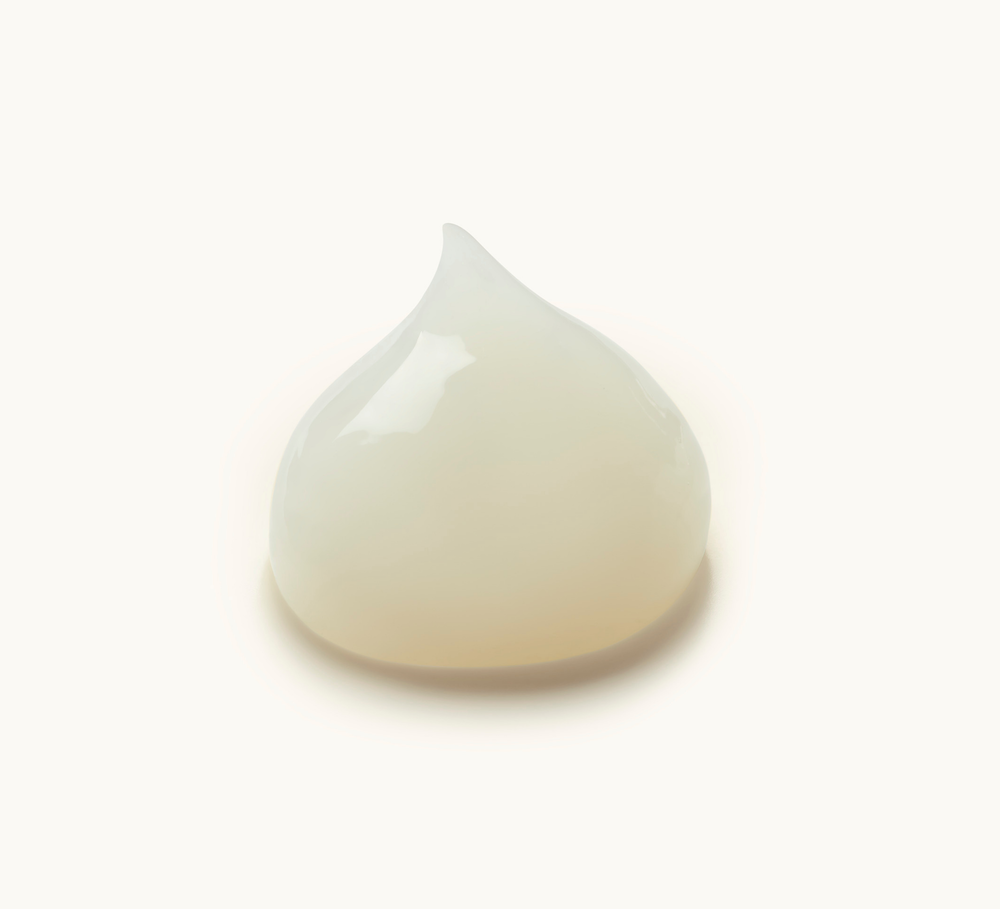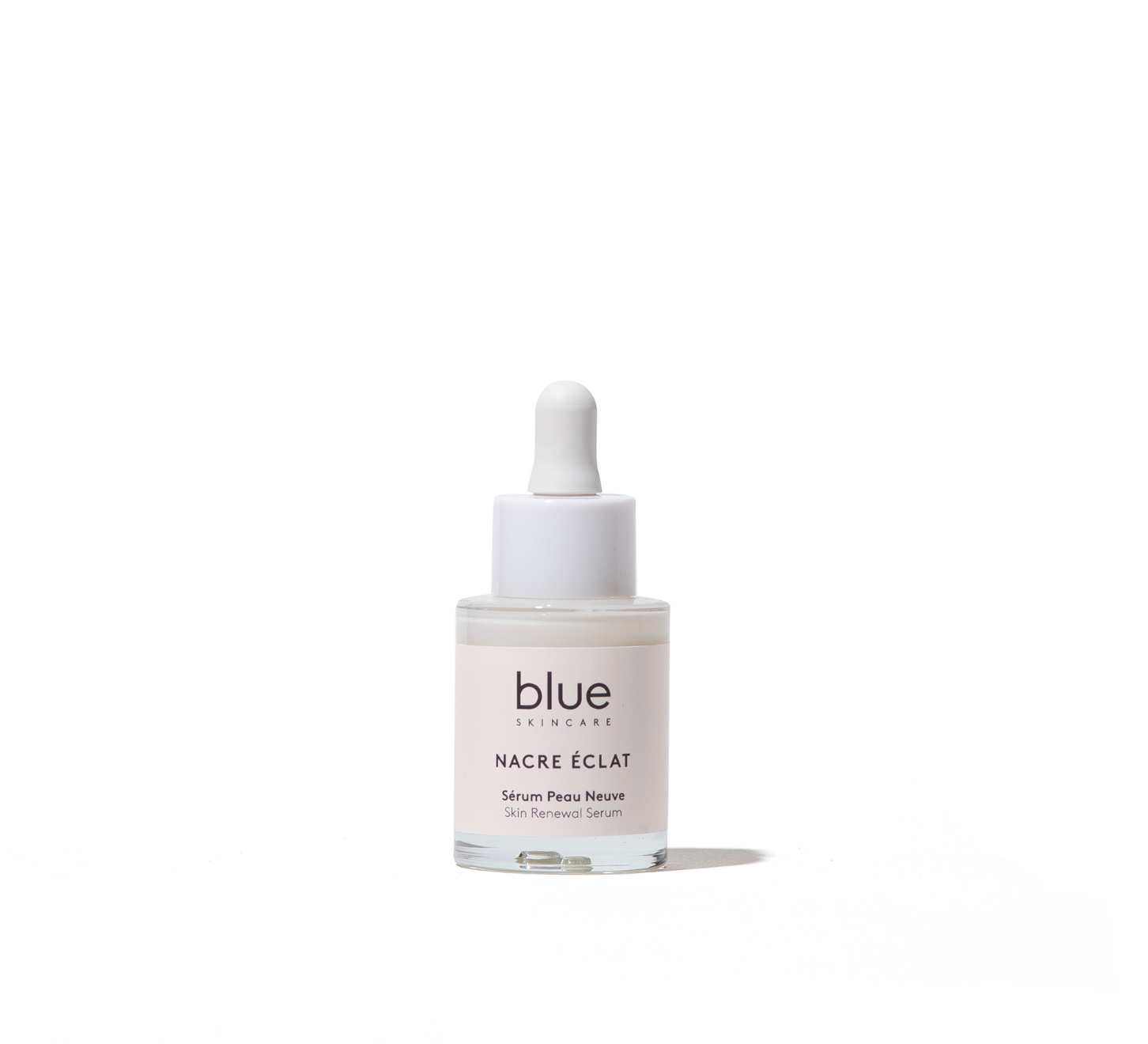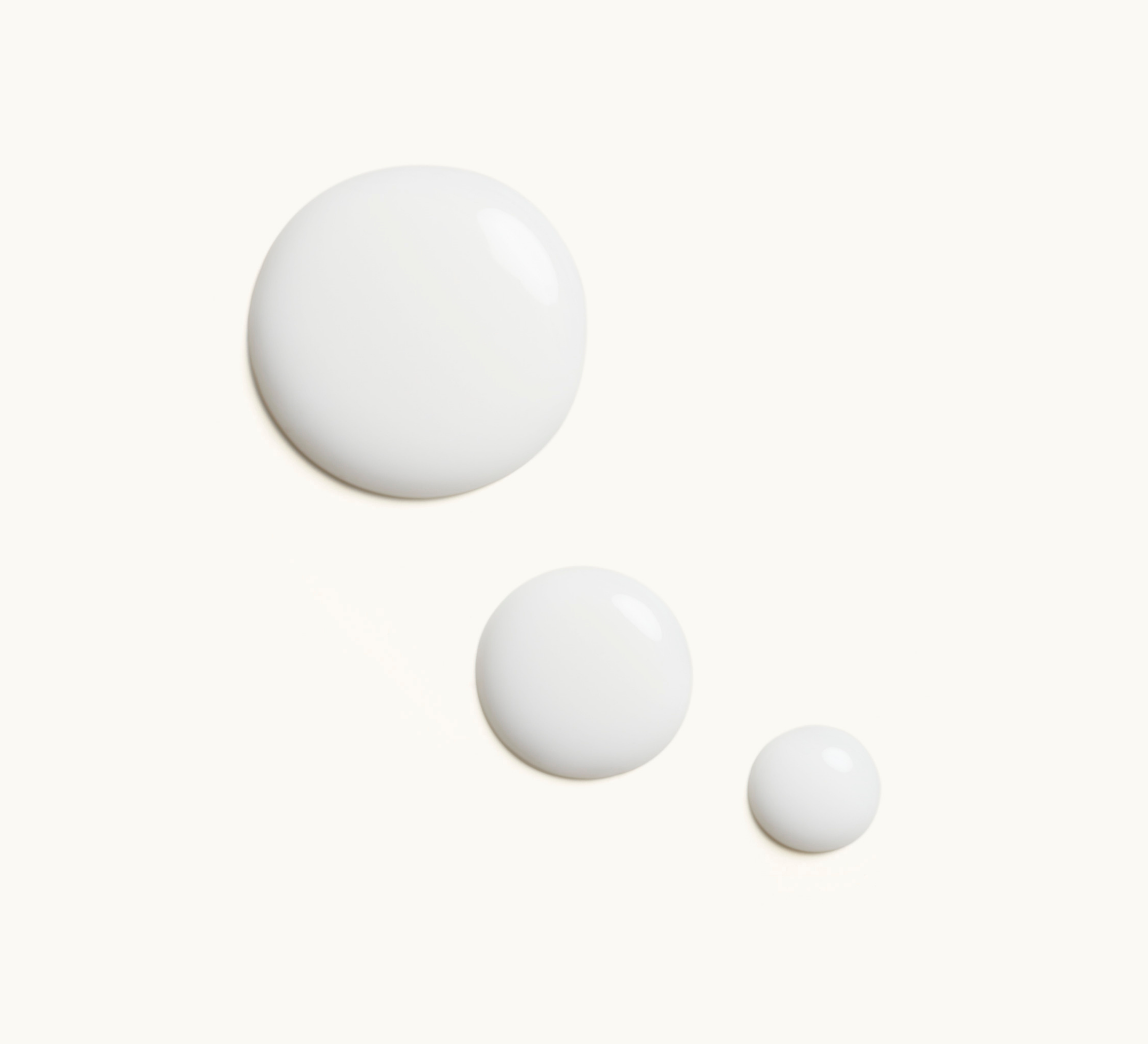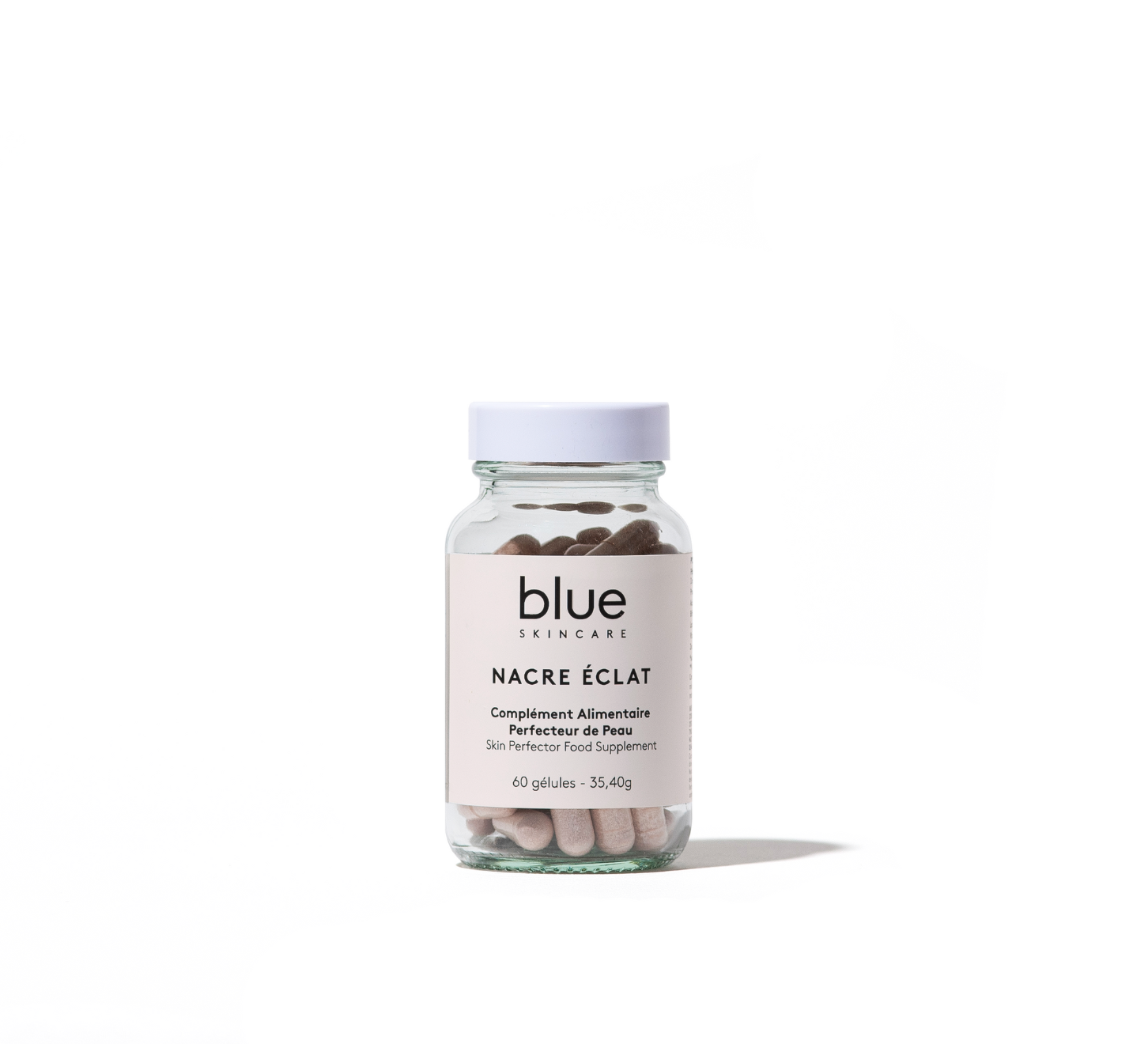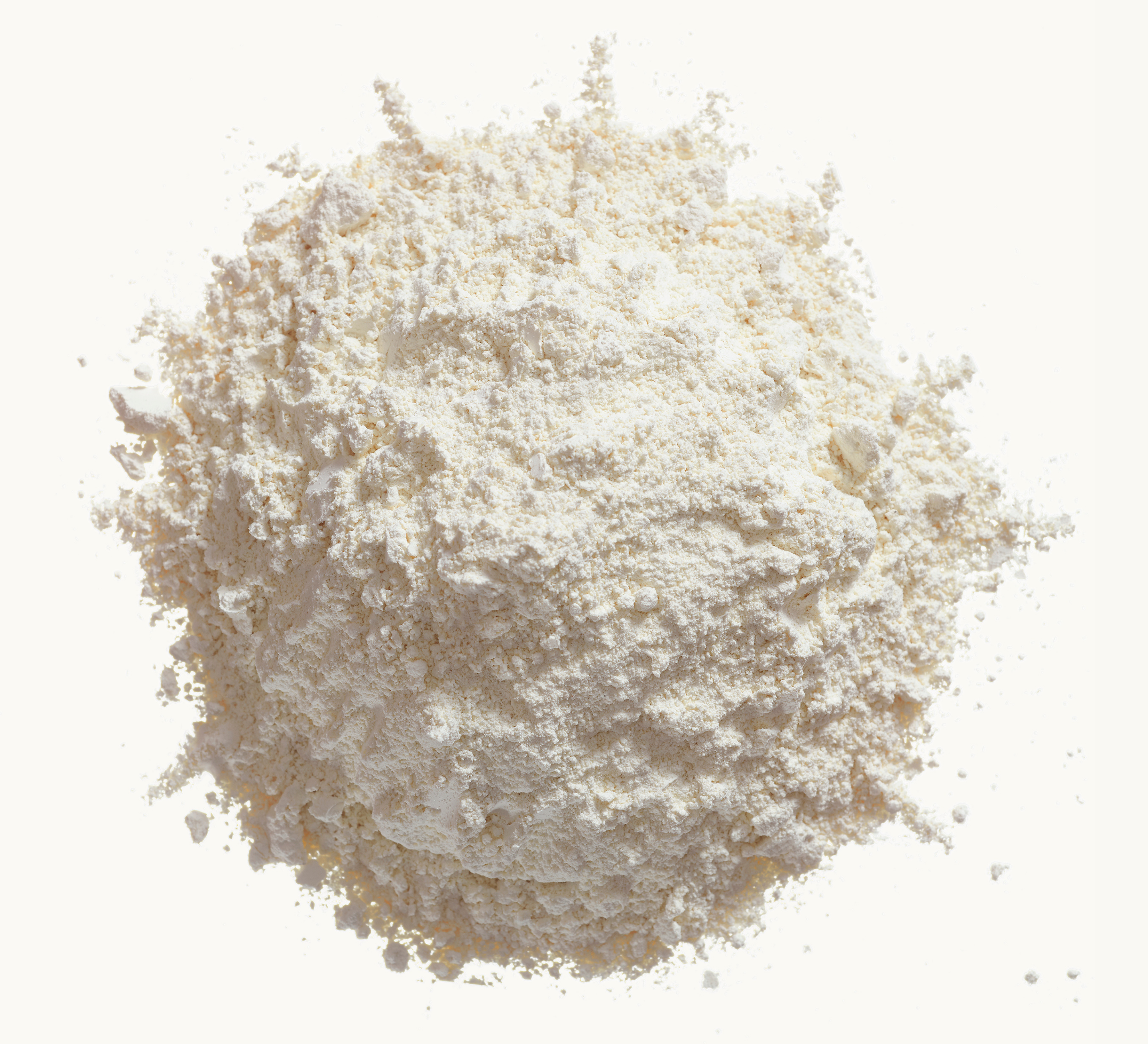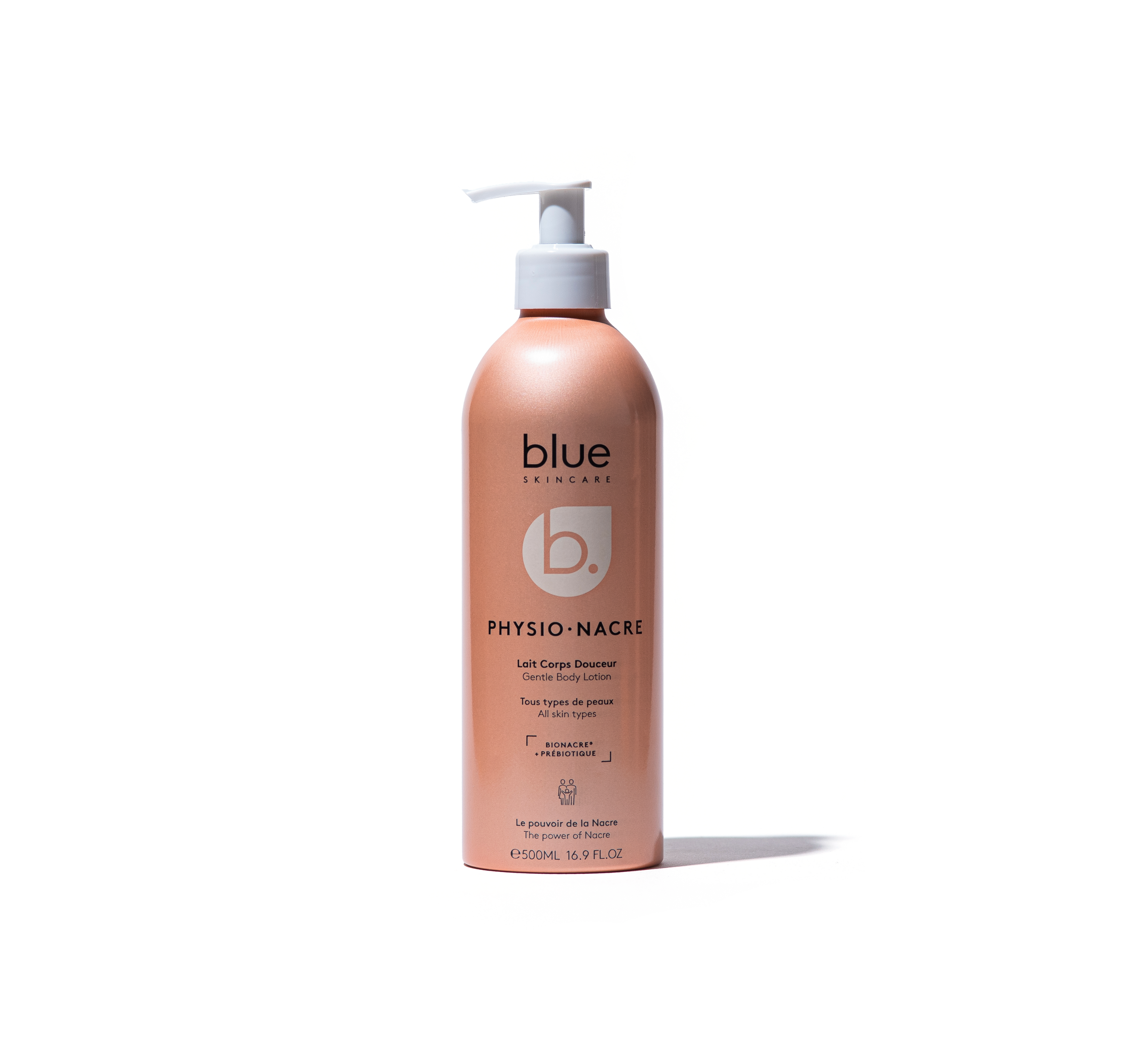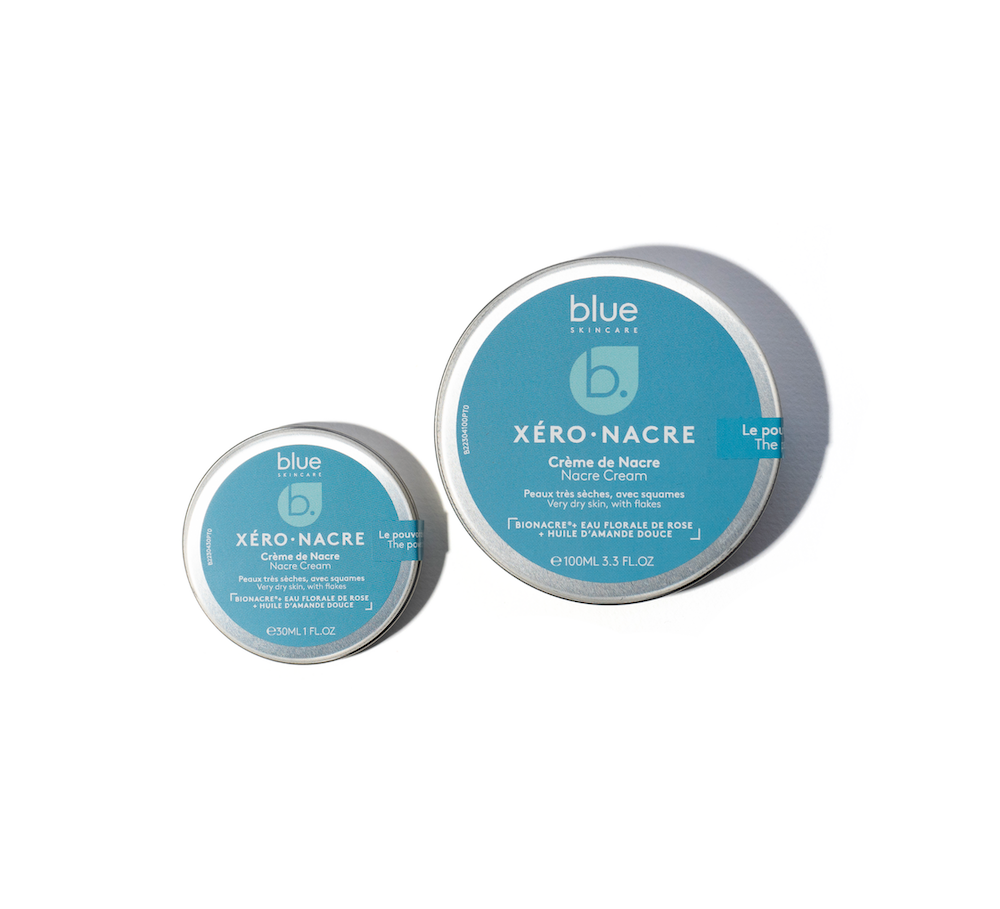A chronic inflammatory skin disease, psoriasis most often results in red patches covered with silvery scales. Characterized by an acceleration of skin cell growth, it manifests itself cyclically , with periods of remission and flare-ups.
Beyond a simple skin condition, this complex pathology can significantly affect the lives of those affected. Blue Skincare helps you untangle the facts about psoriasis and find lasting solutions .
What are the symptoms of psoriasis?
Symptoms of psoriasis
Depending on the form of the disease and its severity, the symptoms of psoriasis vary. However, among the most noticeable are:
-
Scaly red patches or psoriatic lesions , the most common symptom among the general public. The affected areas are often covered with red or pink patches with silvery-white flakes, which may be thick and dry;
-
Itching and pain . The affected skin may be itchy or even painful, especially if it is cracked, and during a period of inflammation;
-
Dryness and cracked skin . Skin may become dry, cracked, and bleed, increasing the risk of infections ;
-
Changes in the nails . Psoriasis can also affect the nails, causing deformities, spots, or thickening;
-
A scalp condition. When it affects this part of the body, psoriasis can cause severe itching and dandruff, which can sometimes be difficult to treat.
Good to know: psoriasis generally appears in specific areas, such as areas of friction (knees, elbows and armpits), on the scalp, lower back , palms of the hands and soles of the feet, genitals or even nails .
The different forms of psoriasis
While scaly plaques are the most common form of psoriasis, rarer forms also exist, such as guttate psoriasis, which particularly affects children. Psoriasis can sometimes be more severe, such as pustular psoriasis . During flare-ups, large plaques cover the patient's body, accompanied by uninfected pustules and fever.
Finally, nail psoriasis , called ungual, is responsible for small, deep spots, reminiscent of a thimble shape. Beyond a certain discomfort, the disease can destroy part of the nail.
Who is affected by psoriasis?
Psoriasis affects approximately 2 to 3% of the world's population , regardless of gender. In France alone, there are more than 2 million people affected, and 60,000 new cases each year, all forms combined. It can occur at any age, although familial psoriasis is most often diagnosed between the ages of 15 and 35 , and sporadic psoriasis appears more often after the age of 50.
Genetic factors play a significant role in the onset of the disease; approximately 30% of those affected have a family history of psoriasis. But rest assured, 8 out of 10 people affected by this disease only have a mild or non-extensive form, relieved by topical treatment.
Causes and triggers of psoriasis
As you will have understood, genetic predispositions play a key role in the appearance of psoriasis: approximately 1 in 3 people affected have a family member suffering from the same disease.
Psoriasis can also be an immune response . Remember that it is a chronic autoimmune disease, which means that the immune system mistakenly attacks skin cells. T lymphocytes, a type of immune cell, are largely responsible for this abnormal reaction: they cause inflammation and stimulate the excessive production of skin cells , leading to the formation of psoriatic lesions.
Sudden cold , excessive heat, or polluted air can also explain the appearance of red patches. Finally, it is also possible to look for answers in the area of mental health . Emotional shock, burnout, or illness can influence your immune response and cause flare-ups.
What are the possible complications associated with psoriasis?
Generally, with proper treatment, psoriasis remains stable and patients are able to live with it. But did you know that there are severe forms associated with this skin disease? Patients whose body is 90% covered in scaly plaques run the same risk as a major burn victim. To avoid associated dehydration, serious infections, or hypothermia, it is important to receive appropriate care in the hospital.
Furthermore, psoriasis can lead to various complications :
-
It may be associated with a chronic inflammatory rheumatism called psoriatic arthritis , which causes pain, swelling and stiffness in the joints;
-
It triples the risk of developing chronic inflammatory bowel diseases , including ulcerative colitis and Crohn's disease;
-
It can cause uveitis , an inflammatory condition of the eyes;
-
It can aggravate existing cardiovascular diseases , such as stroke (Cerebrovascular Accident), venous thrombosis or coronary pathologies;
-
Finally, it also has a significant impact on mental health and self-esteem. People who suffer from it may suffer from stress, anxiety, and depression due to the visibility of the plaques and persistent itching.
Treatment of psoriasis
Systemic treatments are necessary to treat the most severe forms of psoriasis. A doctor may then prescribe biological drugs to specifically target the immune processes responsible for inflammation, or even immunosuppressants to the activity of the immune system.
Phototherapy , which involves exposing the skin to ultraviolet rays, may also be considered to treat moderate to severe forms of psoriasis .
If you don't suffer from a severe form, trust the unique BIONACRE® manufacturing technology developed by Blue Skincare. Specially designed for psoriasis-prone skin, the Xero.Nacre range helps you regain skin comfort and well-being. You'll find our psoriasis creams for a complete, soothing and nourishing routine, rich in natural active ingredients, to sustainably reduce the symptoms associated with psoriasis and restore comfortable skin.
